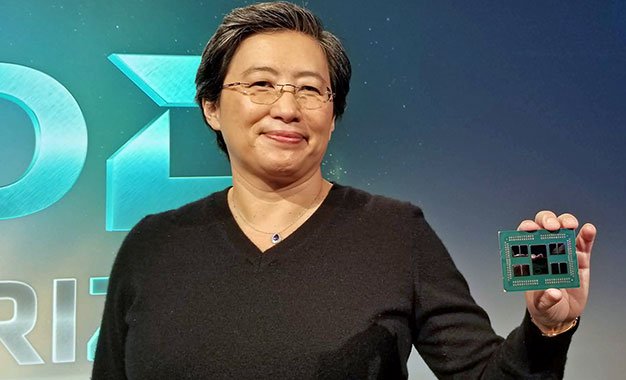AMD EPYC CPUs Grab 2 Percent Of 2018 Server Market, 7nm Zen 2 Rome Could Top 5 Percent In 2019
No one ever thought it would be easy for AMD to quickly claw away market share from Intel in the server market. While AMD's prospects in the consumer space with its Ryzen processors have been more promising, Intel’s rule of the x86 server market with an iron fist has been nearly impenetrable.
However, a new report from DRAMeXchange states that so far throughout 2018, AMD has managed to capture 2 percent of the x86 server market with its EPYC processors. If you recall, EPYC first launched in mid-2017, and has generally been praised for its compelling balance of performance and value versus competing Intel Xeon offerings.

While a 2 percent share might be scoffed at by some as being rather insignificant compared to Intel's dominant 98 percent share, AMD's growing competitiveness and process node advantage could turn that 2 percent share into a much larger slice of the pie in the coming years. In fact, DRAMeXchange is forecasting that with the launch of 7nm Zen 2 "Rome" EPYC processors during the first half of 2019, AMD stands to capture 5 percent of the x86 server market next year.
If those trends continue, and Intel indeed can't get its 10nm server chips out until 2020, AMD could further chip away at Intel's lead. A 2 percent share would just be a minor annoyance to Intel, and 5 percent would definitely get Intel's attention. But once we start getting towards 10 percent or higher, we could start seeing some real momentum in AMD's favor if it can stick to its production timetable.
Former Intel CEO Brian Krzanich admitted as much when speaking in June with Romit Shah of Wall Street analyst firm Nomura Instinet. Shah said in a research note (as reported by CNBC):
Mr. Krzanich was very matter-of-fact in saying that Intel would lose server share to AMD in the second half of the year. This wasn't new news, but we thought it was interesting that Mr. Krzanich did not draw a firm line in the sand as it relates to AMD's potential gains in servers; he only indicated that it was Intel's job to not let AMD capture 15-20% market share.
AMD's execution and growing confidence in the industry to accept its EPYC processors is beginning to pay off. Amazon recently announced that it would be using EPYC powered systems Amazon Web Service (AWS) EC2 instances. Amazon is using 2.5GHz EPYC 7000 series processors which offer up to a 10 percent cost savings for customers in the EC2 compute environments.


